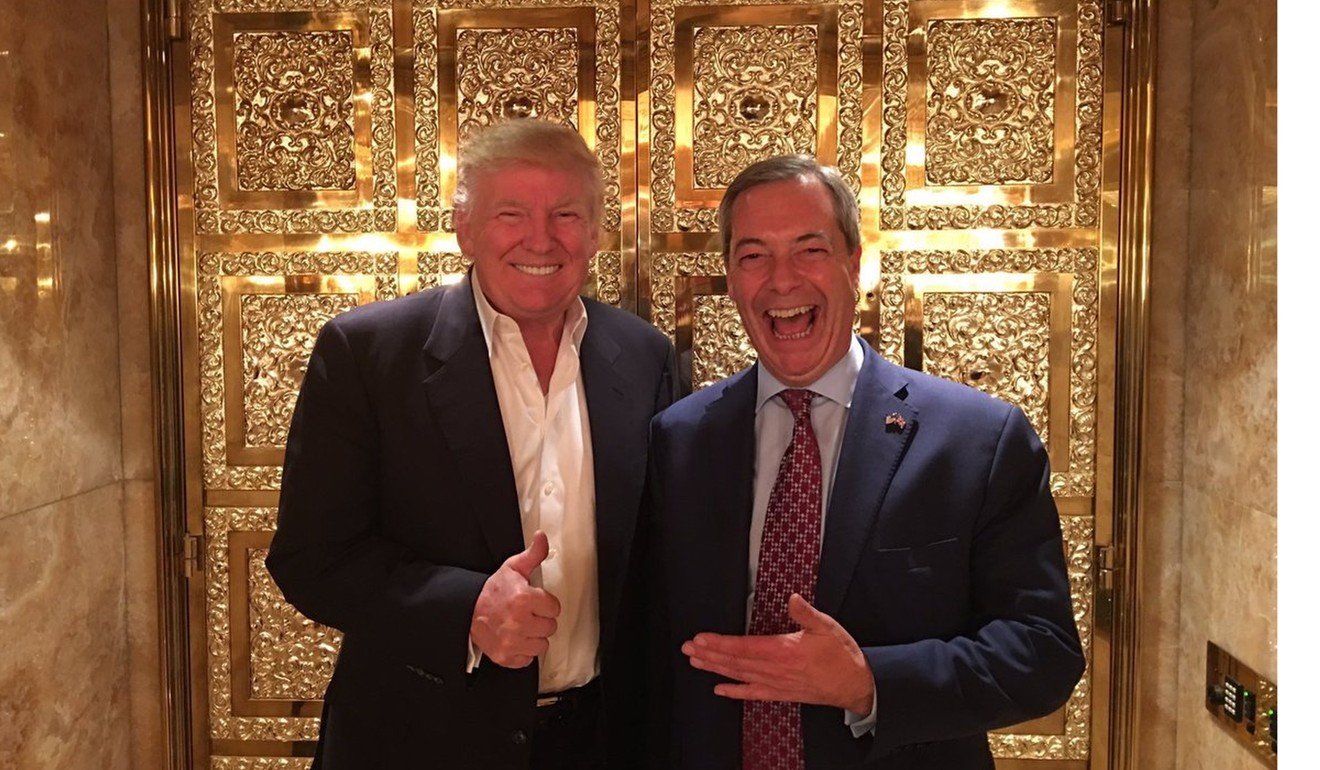
Comedy of errors: meet the cast of Britain’s Brexit tragedy
- As confusion and chaos grips Britain over its future with the EU, here’s a look back at some of Brexit’s instigators and where they are now
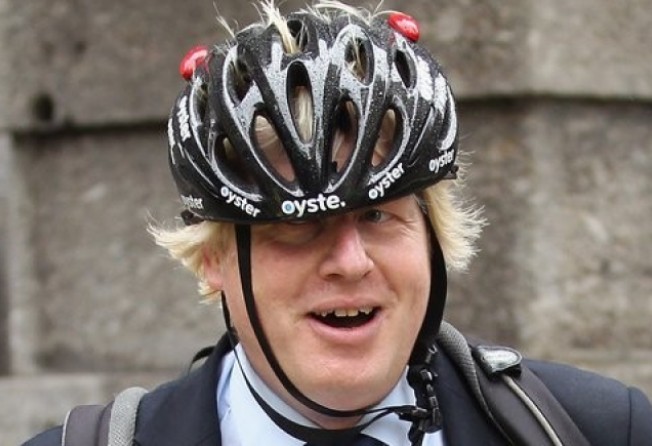
Observers of the deepening political crisis in Britain over Brexit may well be reminded of a Shakespearean tragedy.
It has a storyline full of blind ambition and treachery that threatens to blow apart the United Kingdom, reignite the troubles in Northern Ireland and send Scotland racing off to independence.
Or is it, they may ask, a cautionary tale like Matilda by the Anglo-French writer Hillaire Belloc about a girl who told so many lies she was burnt to death?
Then again, in the age of social media and political narcissism, many of the characters could have stepped straight out of a James Bond novel, only 007 has yet to show up.
Or is Brexit simply the consequence of the sometimes malign incompetence of the British ruling class from the colonial era of yesteryear, with a couple of chancer “wide boys” thrown in?
Here are some of the characters:

Nigel Farage
For many Remainers, the biggest villain is Nigel Farage. An elected member of the European Parliament and radio host, he is the founder of the United Kingdom Independence Party (UKIP) that called for Brexit based on anti-immigrant sentiment.
He has stood for election to the House of Commons seven times, but has never won, but has friends in high places.
A close ally of former Trump adviser and alt-right founder Steve Bannon, Farage was the first British politician to meet Donald Trump after his election who reportedly asked May to make him Britain’s ambassador to the US.
Only this week, Farage tried to persuade Trump in Washington of the merits of a no-deal Brexit, according to The Daily Telegraph.
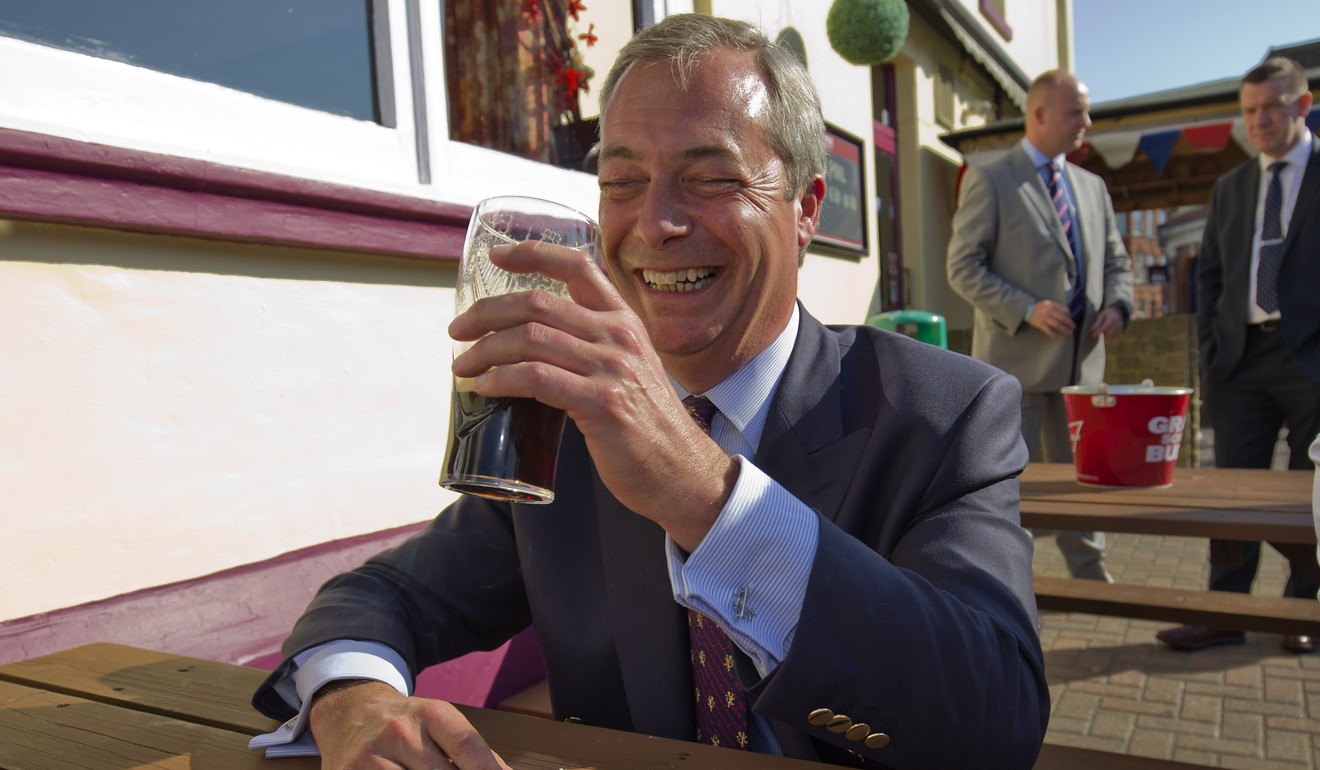
Often pictured with a pint of lager and a cigarette, the former metals-trader and currency dealer claims to for the “common man” against the “establishment”, but flew to a campaign meeting in the north of England on a private jet.
On the night of the June 2016 Brexit vote, he “conceded” defeat on TV, all the while privy to a private exit poll that showed the opposite, paving the way for a collapse in sterling, according to an investigation by Bloomberg last year.
Farage denies the accusations but Odey Asset Management, run by Conservative party donor and leave supporter Crispin Odey, is reported to have made US$300 million from Brexit, to name just one beneficiary of the surprise result.
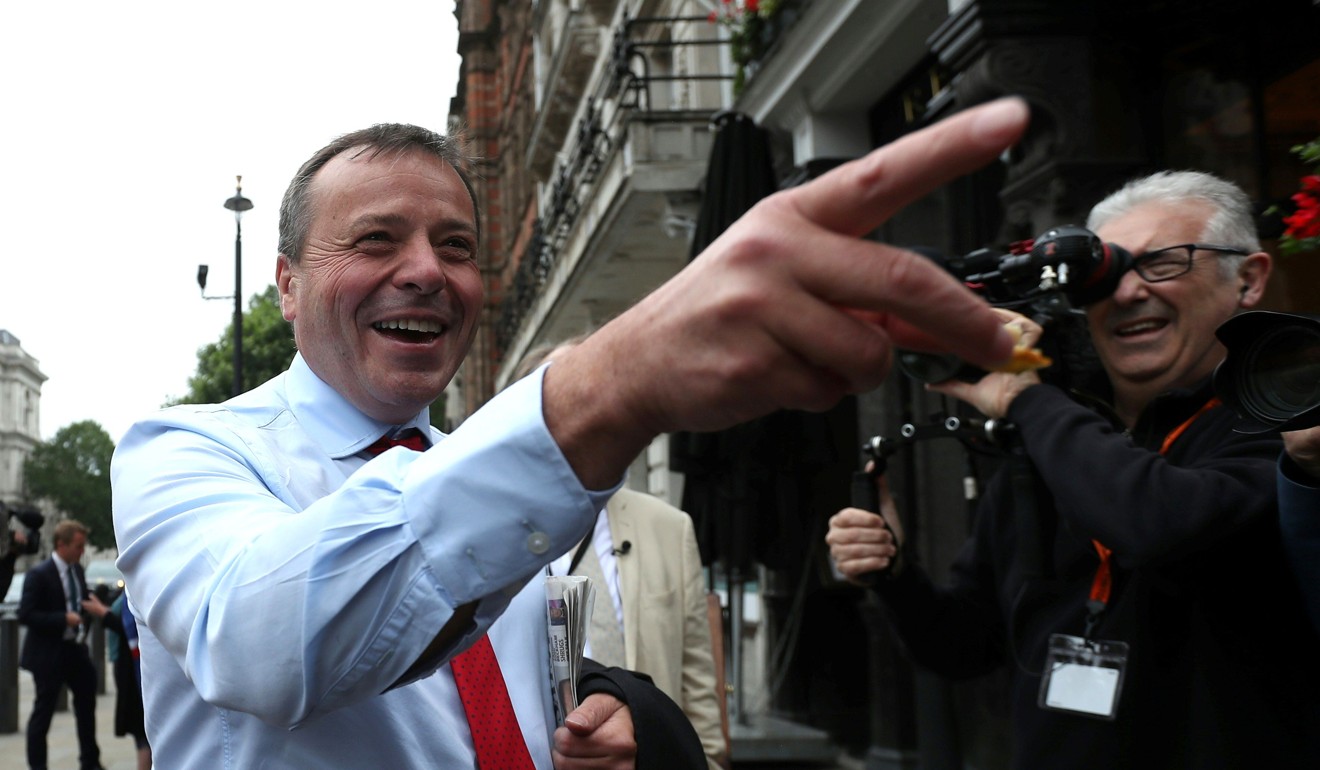
Arron Banks
Estimated to be worth between £100 million (US$133 million) and £250 million (US$333 million), businessman Arron Banks financed UKIP and the Leave EU campaign to the tune of £8.5 million (US$11.3 million) according to a UK parliamentary report that stated it found no proof the money came from the UK.
Not only was it possibly the biggest ever political donation in Britain, it has the whiff of the Kremlin all over it and is now subject to an investigation by the National Crime Agency.
Banks is married to a Russian, Ekaterina Paderina, who has an XMI5 SPY number plate on her Range Rover.
The couple is alleged to have been regular guests at the Russian embassy. Banks wrote about at least one of them in his autobiography Bad Boys of Brexit.
When asked by the parliamentary select committee who investigated him last year if he had hired the now defunct political consultancy Cambridge Analytica, Banks replied: “Maybe a better choice of words could have been deployed there.”
“Did we hire them? Clearly not, because we didn’t pay them or sign a contract.”
He later walked out of the committee.
More recently, an investigation by Britain’s Channel 4 accused him of being involved in a multimillion pound South African gold-mining deal brought to him by a Russian oligarch connected to the Kremlin.
He has denied the allegations but in his autobiography did confess to being expelled after stealing lead from his school’s roof “and flogging it”.
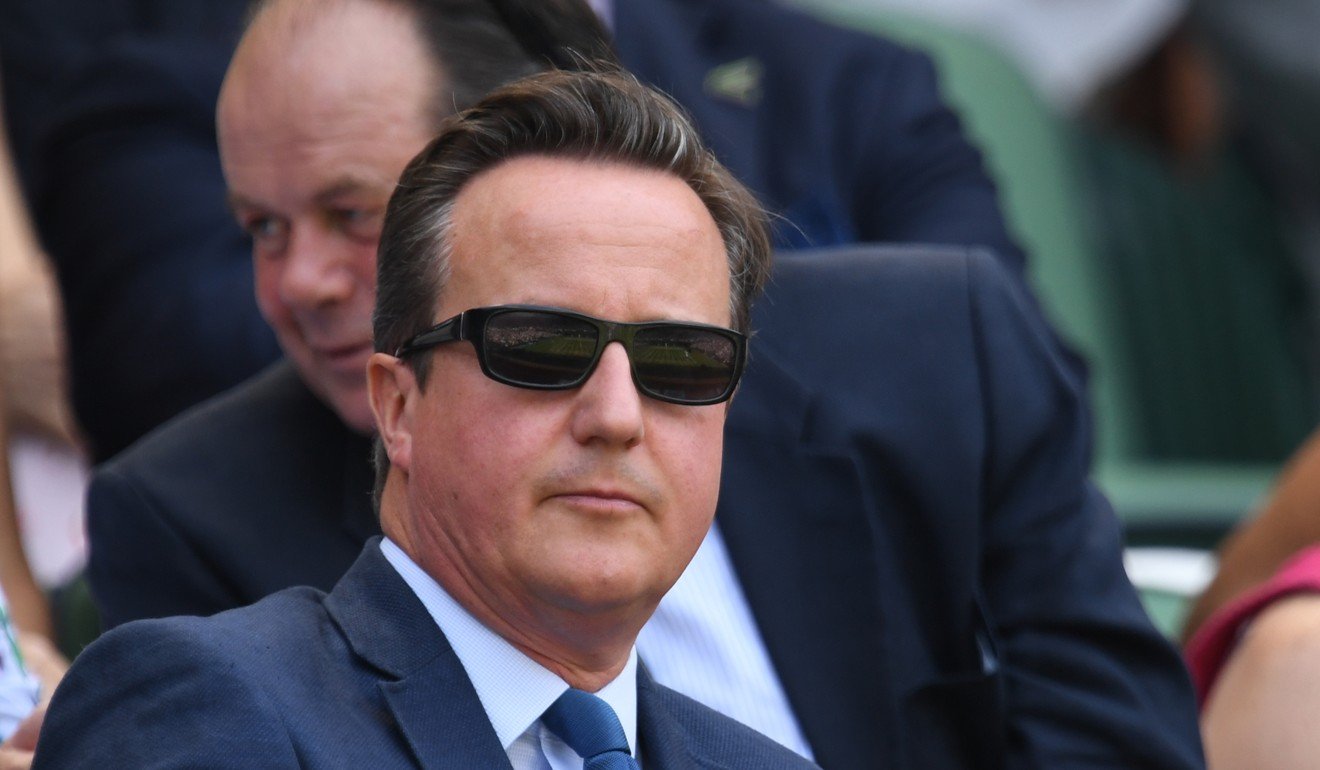
David Cameron
Although he campaigned to remain in the EU, the person perhaps most responsible for the whole mess is the former prime minister David Cameron, who will go down in history more for upper class British incompetence reminiscent of the disastrous partition of India, than malevolence.
With UKIP nipping at the Conservative Party’s heels, the old Etonian pledged to settle the division in his own party over membership to the EU with a referendum following the 2015 general election in which he led his party to victory.
With the Leave campaign promising to give £350 million (US$466 million) to the ailing National Health Service, a promise famously plastered all over Farage’s battle bus (again paid for by Banks), and growing hostility to immigration, he lost.
Instead of then steering the country through the Brexit process he had facilitated, Cameron resigned as prime minister and leader of the Conservative Party, leaving his successor Theresa May to deal with the consequences.
Cameron is a former member of Oxford University’s notoriously snobbish “Bullingdon Club”, known for its debauchery.
The Bullingdon Club 1987 - 1. Sebastian Grigg, 2. David Cameron, 3. Ralph Perry-Robinson, 8. Boris Johnson, pic.twitter.com/W2BbhrsS
— TheNewPartyMovement (@NewPartyMovemnt) November 1, 2012
Boris Johnson
Another leading Brexiteer is fellow Bullingdon Club member Alexander Boris de Pfeffel Johnson, better known as Boris Johnson, or simply Boris. Born in the US, he is a journalist, politician and former foreign secretary.
With his dishevelled blond hair, deliberate political gaffes and provocative sense of humour, it was his decision to back the Leave campaign in 2016 that possibly sealed the vote.
Brexit was likely more a political move for Johnson to grab the Conservative Party leadership than any real conviction.
Having grown up in Brussels, son of a Conservative MEP, Johnson started his career as a cub reporter on The Times, where he was sacked for fabricating a quote.
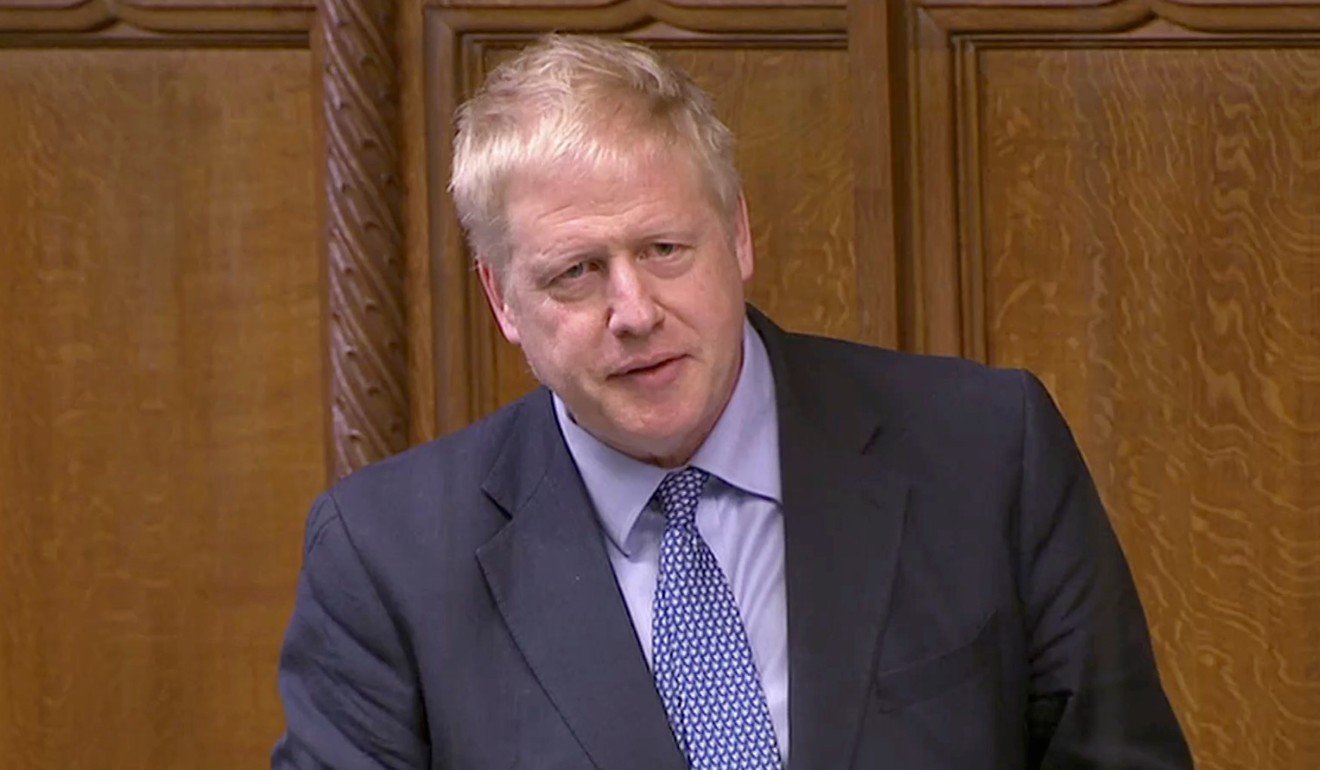
As the Brussels correspondent of The Daily Telegraph in the early 1990s, he established the tabloid tradition of the “Euromyth”, the most famous being a false story about the EU wanting to ban prawn cocktail-flavoured crisps.
He said this was like “chucking these rocks over the garden wall and I listened to this amazing crash from the greenhouse next door over in England as everything I wrote from Brussels was having this amazing, explosive effect on the Tory party.”
As Mayor of London, Johnson took the Olympics baton from Beijing, where he disputed China’s claim to have invented table tennis. As foreign secretary he was publicly scolded by the British ambassador for wanting to cite a line from poem by the colonialist Rudyard Kipling, The Road to Mandalay, while on an official visit to Myanmar.
He resigned as foreign secretary last year, purportedly in opposition to May’s deal with Brussels.
When warned that it could severely damage the UK economy, he famously said “f*** business”.
He also once said his chances of becoming prime minister were as good as finding Elvis on Mars, or being reincarnated as an olive.
With May’s position looking more tenuous by the day, he has cut his hair of late and lost some weight.
Jacob Rees Mogg
With an over-the-top plumy accent and pinstriped suit, the youngest son of a former editor of The Times newspaper, Conservative MP and old Etonian Jacob Rees-Mogg is a long-time Eurosceptic and leader of the hard-line Brexiteer European Reform Group. With his socially conservative ideas, he has been called the “Honourable Member for the 18th Century”, or simply the “Pantomime Toff”.
In the early 1990s Rees-Mogg, worked for an investment fund in Hong Kong where he lived, and was a friend of former governor Chris Patten.
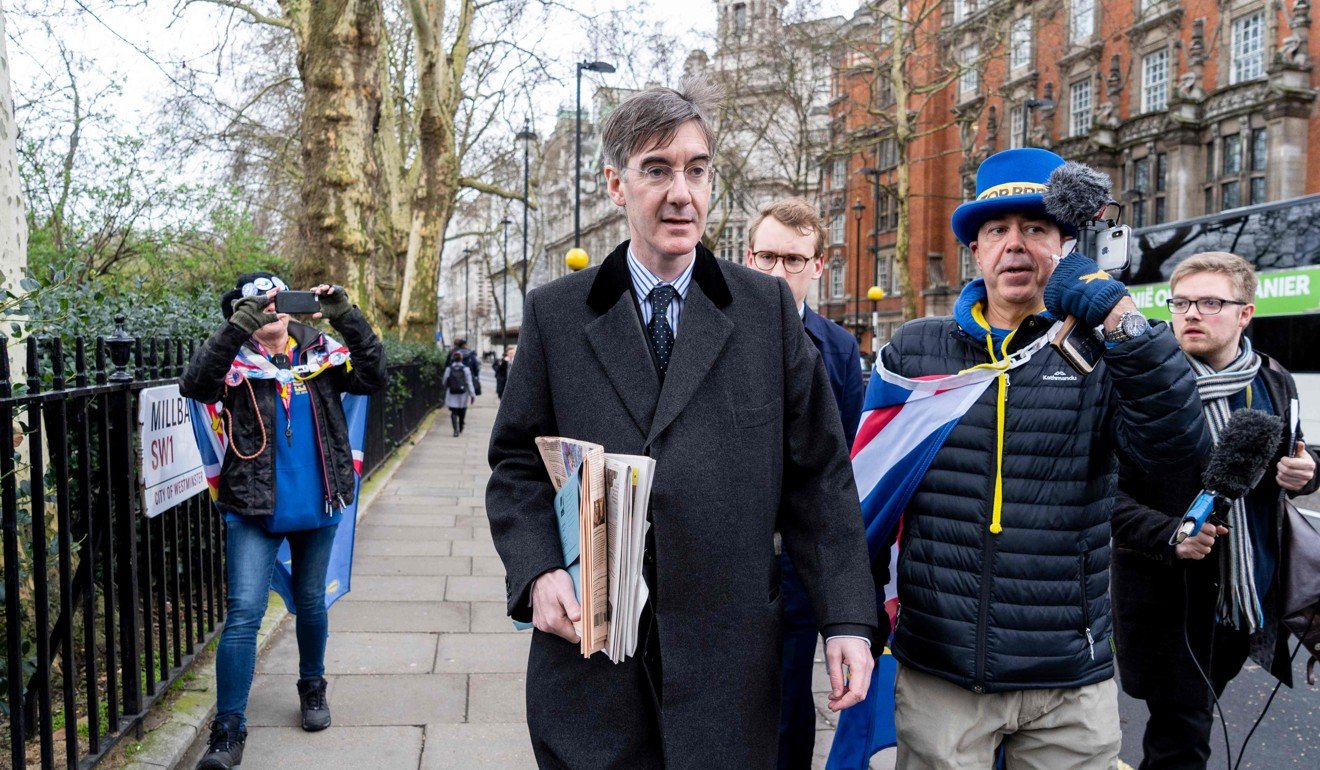
It has been suggested that he might also want to be leader of the Conservative Party, and Farage has said he would back Rees-Mogg.
But there are some voices who believe that his reason for backing Brexit might be more financial, and through his investment firm Somerset Capital he may have already made a profit from the UK’s shenanigans.
An investigation by Channel 4, shown on Monday, claimed Rees-Mogg may have earned up to £7 million (US$9.3 million) from profits made since the vote on the back of the falling pound by the firm Somerset Capital Management (SCM), which he set up in 2007 and has a 15 per cent stake.
Rees-Mogg has also been criticised for hedging his own bets and setting up two SCM funds in Dublin, giving it access to the EU market after Brexit.
The falling pound and falling high-end real estate market following the Brexit vote meant Rees-Mogg recently snapped up a £5 million (US$6.7 million) townhouse in Westminster for less than it would have cost prior to the referendum, giving him a prime residence a short hop from Parliament should he become Conservative leader.
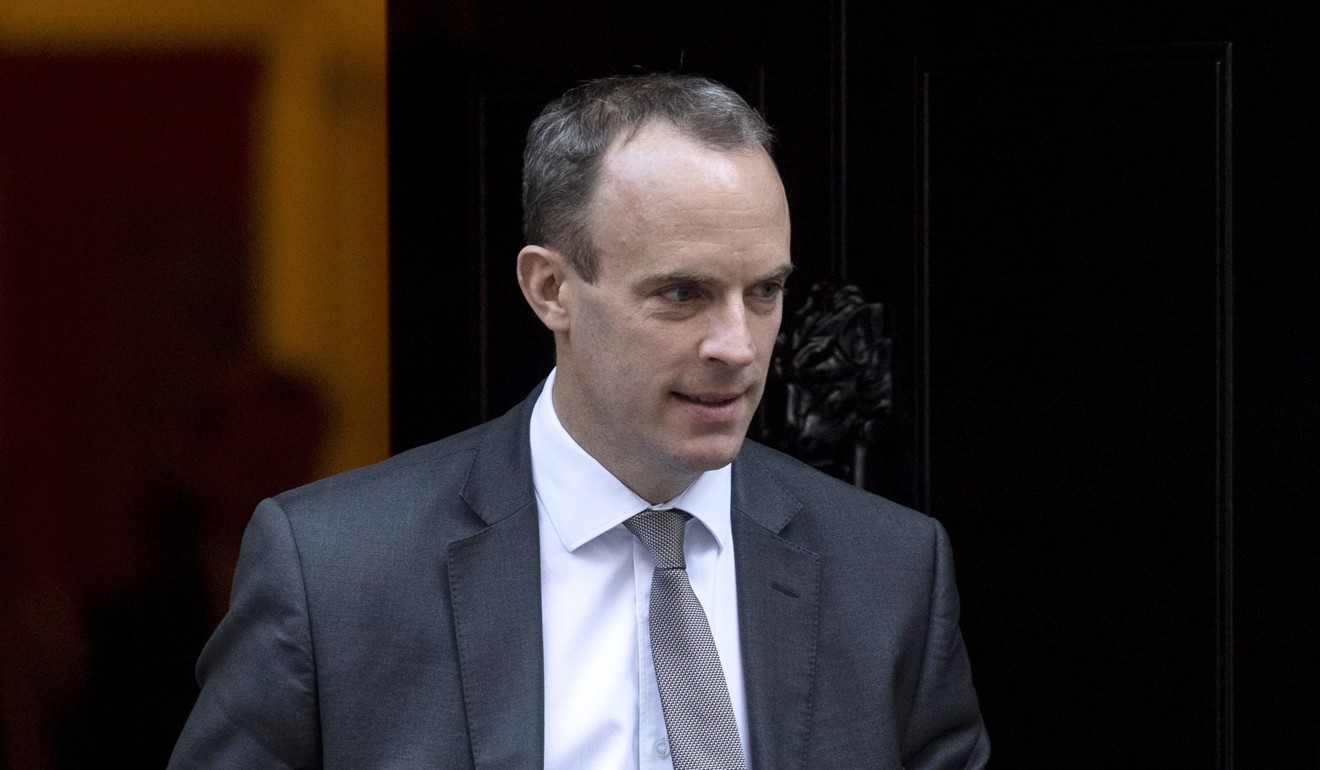
Brexit secretaries
One of May’s first acts when becoming prime minister in 2016 was to appoint a secretary of state for exiting the European Union. The inaugural holder was David Davis, who worked as a lobbyist for the sugar company Tate and Lyle before entering parliament.
His bitterness towards the EU stems from a dislike of the huge subsidies the EU provides for its sugar beet farmers, and huge tariffs on cane sugar.
A long-time Eurosceptic who had been minister of state for Europe between 1994 and 1997, but resigned as Brexit secretary in 2018 because he felt the UK was “giving away too much and too easily” to the EU in the negotiations.
Dominic Raab, an Oxford-educated former lawyer and civil servant, who had worked on foreign trade and in the foreign office, replaced Davis.
Raab only held the post for four months before resigning in protest at May’s deal. He was little known before he took the job but is now, along with Davis, one of the people being tipped as future Conservative leader.
Today, I have resigned as Brexit Secretary. I cannot in good conscience support the terms proposed for our deal with the EU. Here is my letter to the PM explaining my reasons, and my enduring respect for her. pic.twitter.com/tf5CUZnnUz
— Dominic Raab (@DominicRaab) November 15, 2018
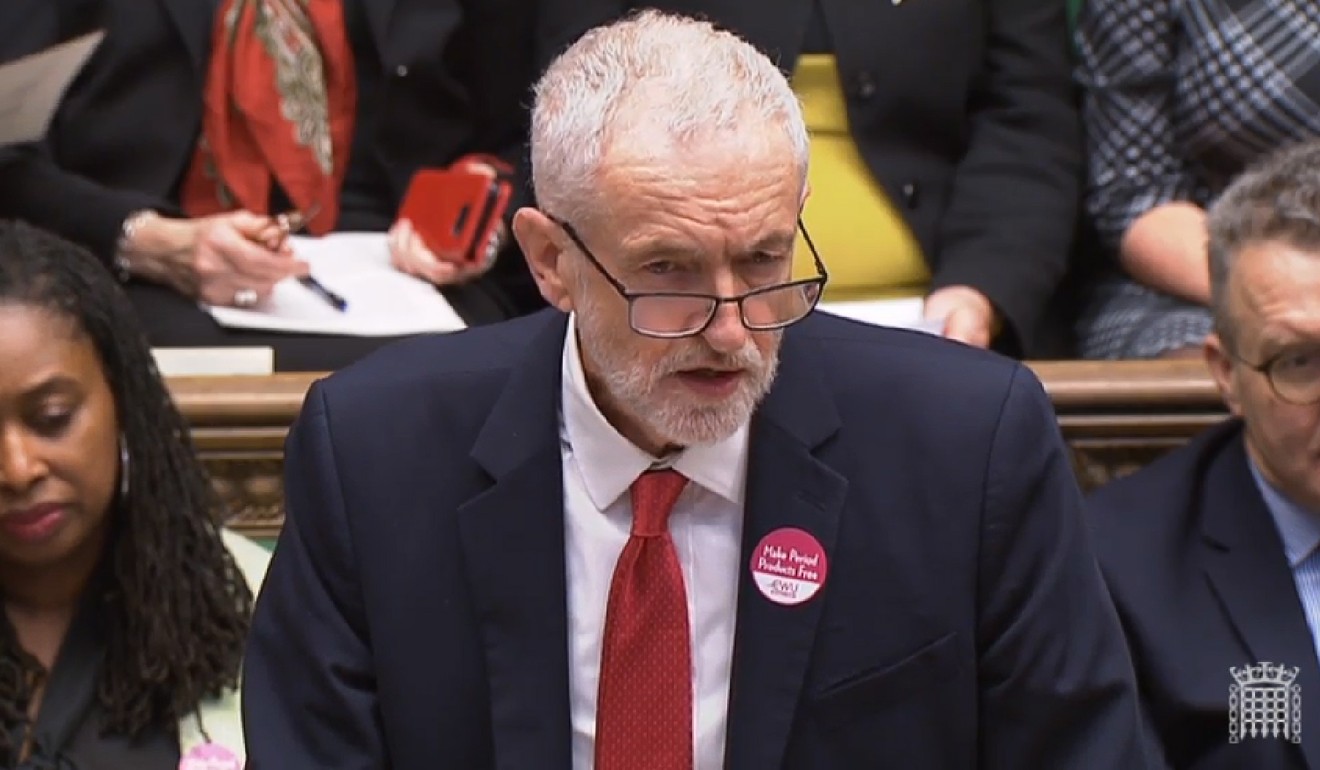
Jeremy Corbyn
There were also plenty of Labour politicians who backed the call to leave the EU, popular in some of the party’s political heartlands, ravaged by de-industrialisation and Conservative austerity.
But for many Remainers, especially the middle-classes, opposition leader Jeremy Corbyn is also a Brexit “villain”.
Traditionally a Eurosceptic of the Marxist left, he says he voted to remain, but due to his lacklustre performance so far in opposing Brexit, many doubt that really to be the case.
Corbyn wants no less than a general election and knows that his plans to renationalise the railways if a Labour government swept to power would likely be blocked by the 28-nation EU.